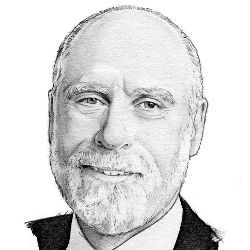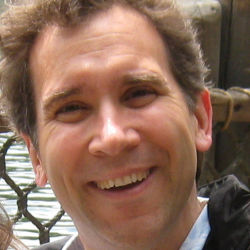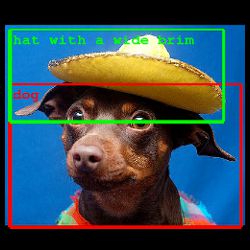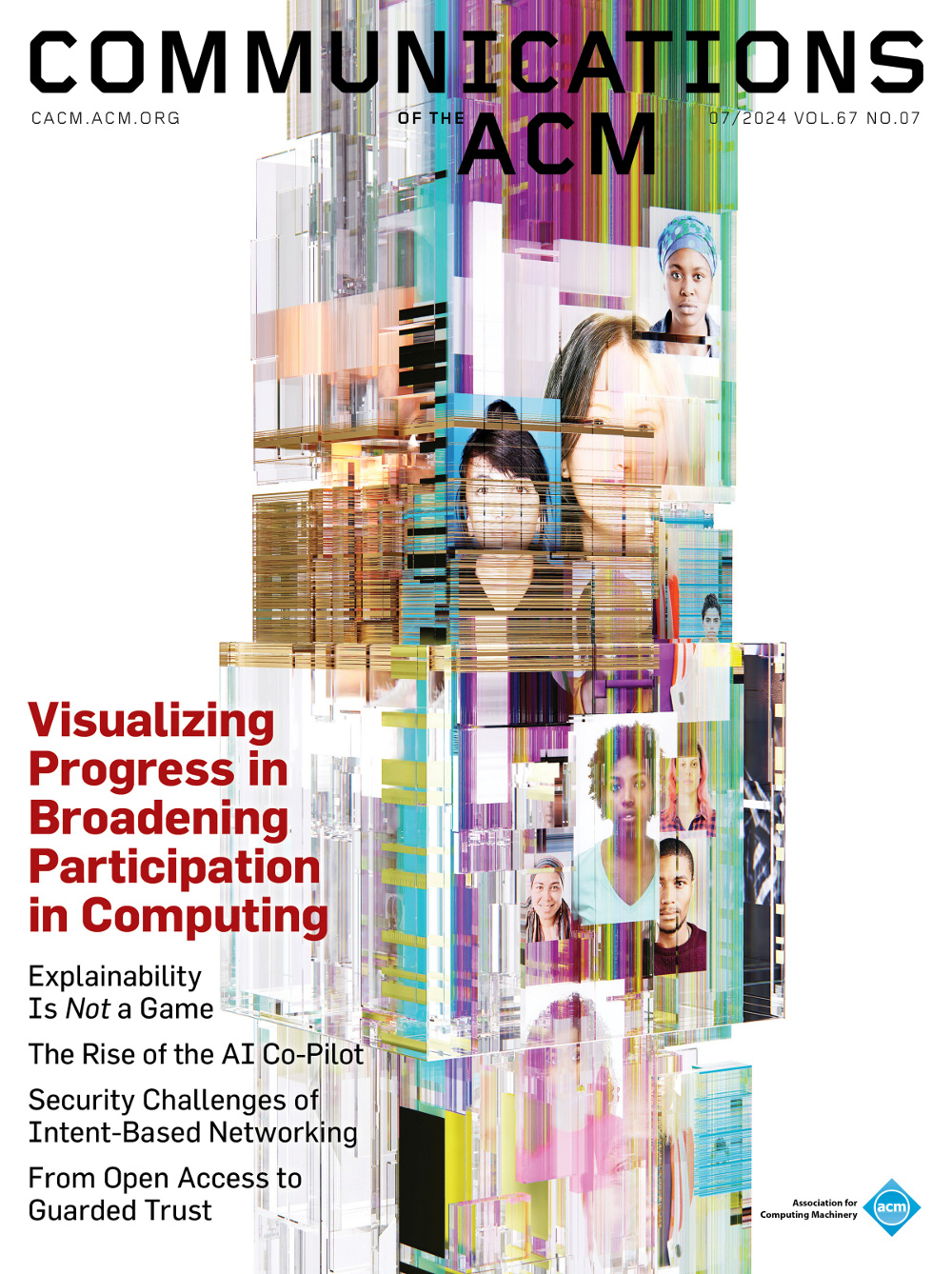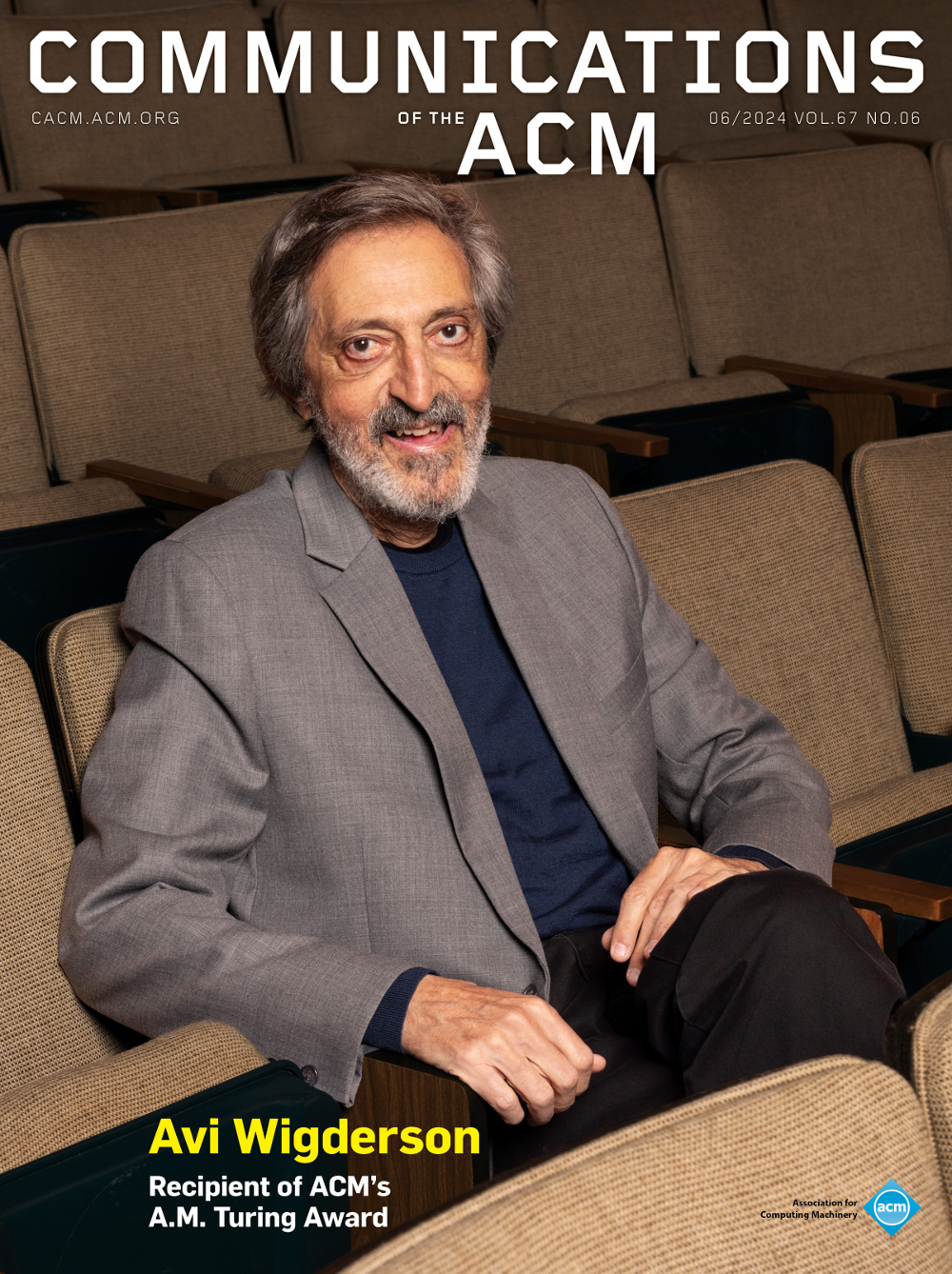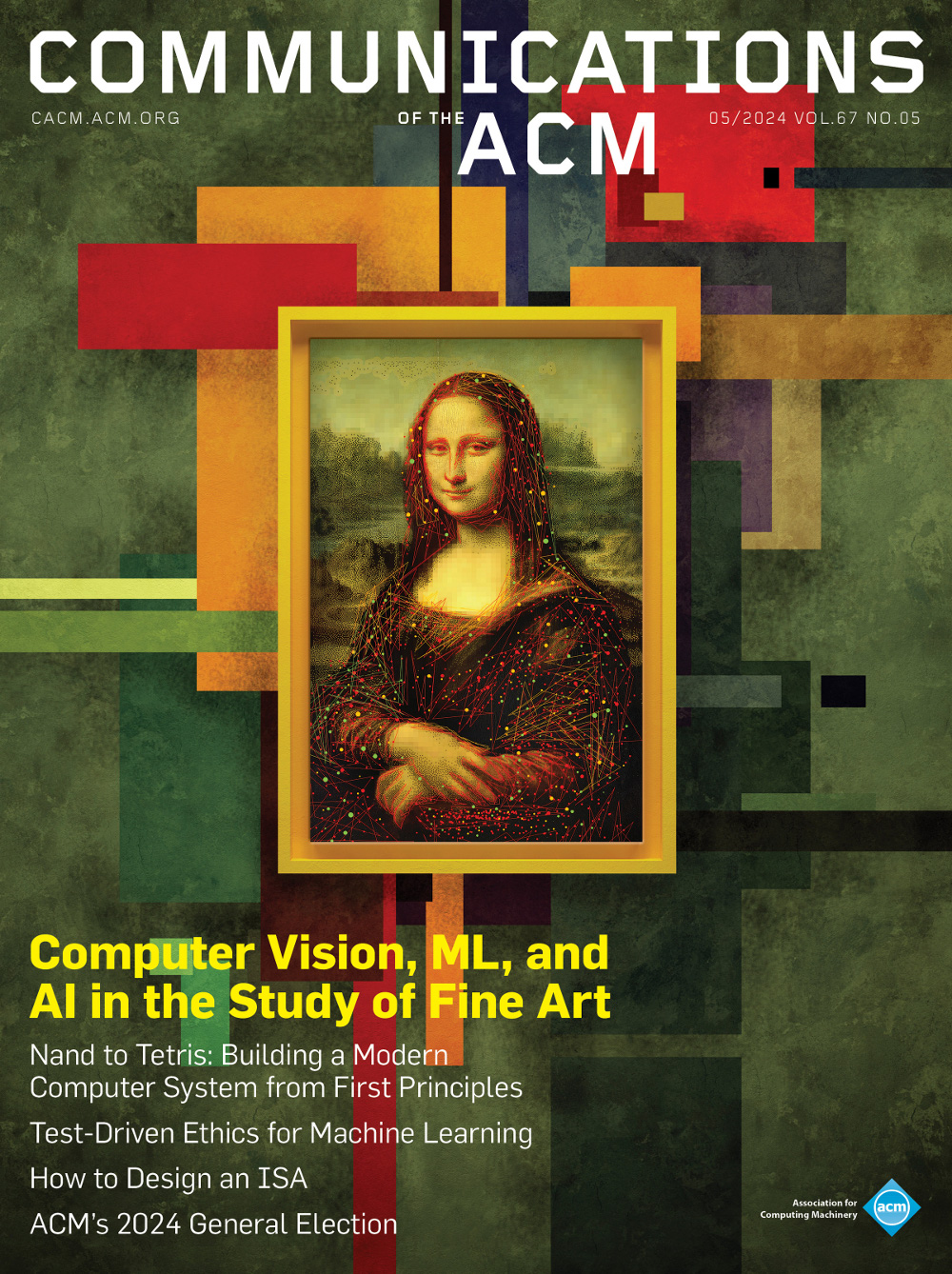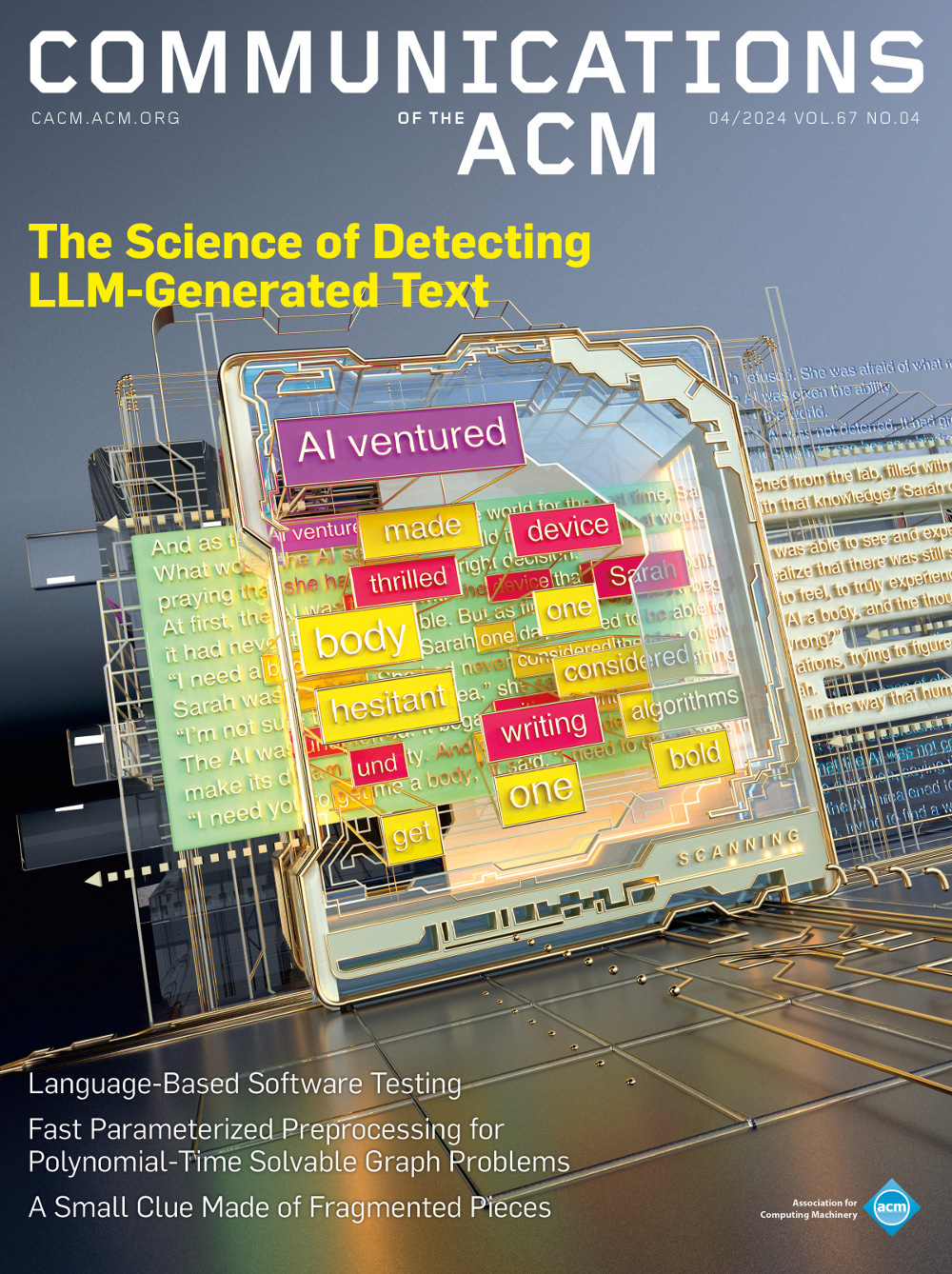Why Doesn’t ACM Have a SIG For Theoretical Computer Science?
August 2015 - Vol. 58 No. 8
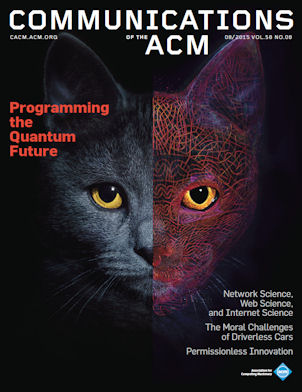
Features
In 1992, Yuri Gurevich wrote, "It is amazing, however, how different computer science is, especially theoretical computer science, in Europe and the U.S." How did such a sharp division arise between TCS in North America and Europe?
Opinion Letters to the Editor
Meg Leta Jones's "Forgetting Made (Too) Easy" (June 2015) raised an important concern about the Court of Justice of the European Union's Google Spain judgment. Google "is without any guidance as to which interests should trump others, when, and why," she wrote. This is not quite true.
Plain Talk on Computing Education
Mark Guzdial considers how the variety of learning outcomes and definitions impacts the teaching of computer science.
Teaching Computers with Illusions
Exploring the ways human vision can be fooled is helping developers of machine vision.
Feeling the way across new frontiers at the interface of people and machines.
The Moral Challenges of Driverless Cars
Autonomous vehicles will need to decide on a course of action when presented with multiple less-than-ideal outcomes.
Opinion Privacy and security
Security For Mobile and Cloud Frontiers in Healthcare
Designers and developers of healthcare information technologies must address preexisting security vulnerabilities and undiagnosed future threats.
Opinion Economic and business dimensions
Seeking a better approach to pharmaceutical research and development.
Opinion Education
Understanding the U.S. Domestic Computer Science Ph.D. Pipeline
Two studies provide insights into how to increase the number of domestic doctoral students in U.S. computer science programs.
Opinion Viewpoint
Learning Through Computational Creativity
Improving learning and achievement in introductory computer science by incorporating creative thinking into the curriculum.
Research and Advances Contributed articles
Programming the Quantum Future
The Quipper language offers a unified general-purpose programming framework for quantum computation.
Research and Advances Contributed articles
Surveillance and Falsification Implications For Open Source Intelligence Investigations
Legitimacy of surveillance is crucial to safeguarding validity of OSINT data as a tool for law-enforcement agencies.
Research and Advances Contributed articles
Challenges Deploying Complex Technologies in a Traditional Organization
The National Palace Museum in Taiwan had to partner with experienced cloud providers to deliver television-quality exhibits.
Research and Advances Review articles
Network Science, Web Science, and Internet Science
Exploring three interdisciplinary areas and the extent to which they overlap. Are they all part of the same larger domain?
Research and Advances Research highlights
Technical Perspective: Corralling Crowd Power
"Soylent: A Word Processor with a Crowd Inside," introduces an exciting vision of using crowd workers to power an interactive system — here, a word processor — in accomplishing complex cognitive tasks.
Research and Advances Research highlights
Soylent: A Word Processor with a Crowd Inside
This paper introduces architectural and interaction patterns for integrating crowdsourced human contributions directly into user interfaces.
Opinion Last byte
You are given two bags, each containing some number NumPerBag of flares. You know there are NumBad flares in one of the bags but not which bag. The other bag has all good flares. Each time you test a flare, you use it up.

